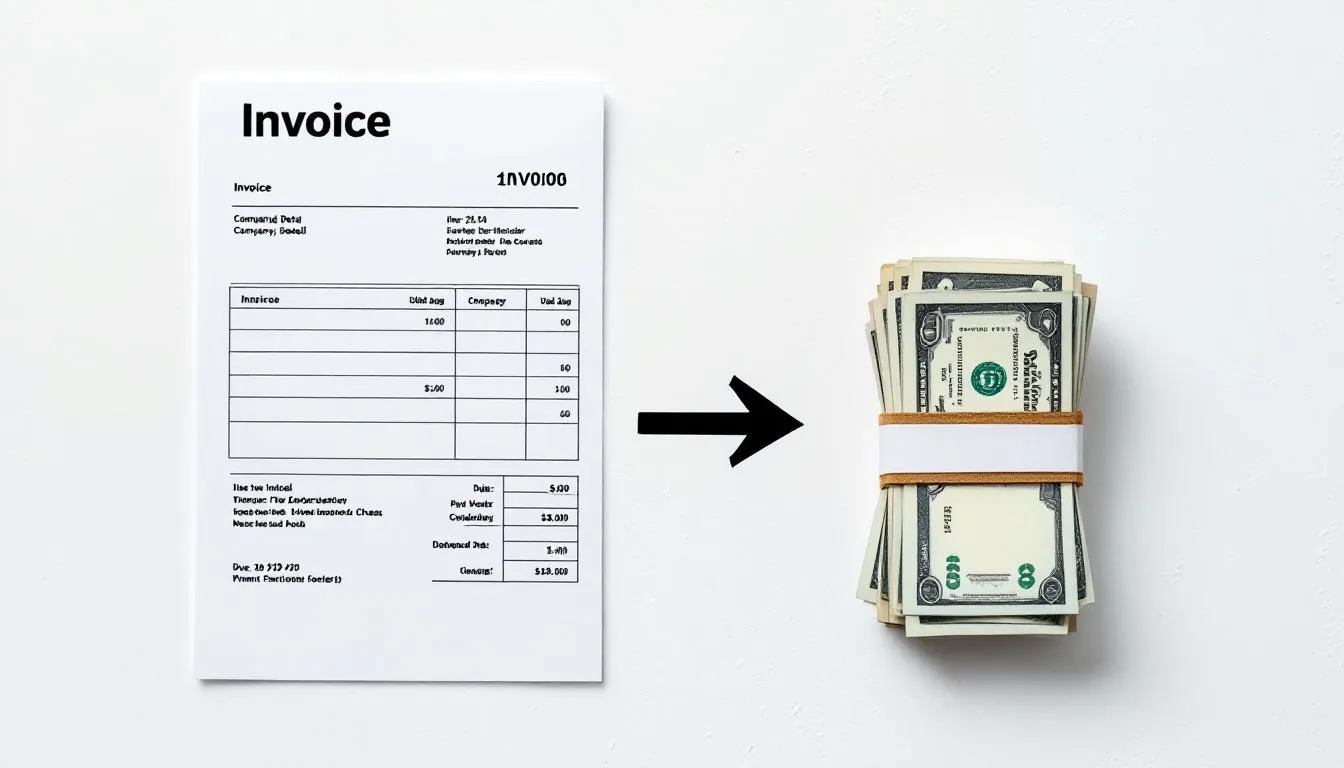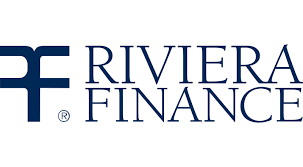What is Invoice Factoring?
Invoice factoring is a business’s sale of its accounts receivable (invoices for materials or services delivered to customers but not yet paid) to a “factor” or invoice factoring company. Most factoring companies advance up to 90% of the invoice value up front. After your customers pay the invoice, any remaining balance is remitted minus the fee from the factoring company.
Other names for invoice factoring are accounts receivable factoring and invoice financing. However, with some invoice financing options, a business owner can secure a temporary loan using unpaid invoices as collateral. Invoice factoring and financing are cash flow solutions.
Note: Invoice factoring is a business-to-business transaction where a company sells its accounts receivable for an immediate cash advance. Invoice financing is a form of asset-based lending where a business uses its accounts receivable as collateral for a loan.
How Does Invoice Factoring Work?
The first step in how invoice factoring works is to choose a factoring company to sell your unpaid invoices to. Next, the business owner can negotiate the terms of a financing agreement with the factoring company and then sell their outstanding invoices. After the invoice factoring company verifies the invoice value, it typically pays out 70-90% of the unpaid invoices.
In everyday language, after a business owner’s customer pays the invoice, the factoring company pays the business owner minus a fee specified in the invoice factoring agreement. There are three parties involved in an invoice factoring transaction: A business, its customers, and the factoring company.
Here’s a Step-by-Step Breakdown of the Invoice Factoring Process:
- The Invoice factoring process begins after a business provides the goods or services to the customer and issues the total invoice.
- The business then sells the invoice to the third-party factoring company, provided the customer’s credit score meets the approval criteria.
- In return, the business receives an immediate cash payment from the factoring company, up to 90% of the invoice value. This is typically transferred directly to the business bank account.
- The remainder of the outstanding invoice is paid to the business when the customer pays any remaining balance for the goods or services, minus any factoring fee owed to the financing company.
Understanding Different Factoring Process Options
There are many types of invoice factoring companies, and you’ll want to ensure that the company matches your specific needs. It may be a good idea for some businesses to factor all their invoices, while others might only need this service on an as-needed basis.
Take the time at the outset to explore the options that best suit your goals, so there will be no surprises down the line about the amount of funding you can access or which customers are funded first.
Below are some important factoring terms you should get familiar with before making your decision:
Invoice Factoring:
Invoice Factoring is when a business sells its accounts receivable at a discount rate to the factoring company in return for immediate cash. The advance on payments is typically 70 to 90 percent of the sold invoice.
Factoring is an excellent alternative to traditional bank loans, as it offers more flexibility. The cash that you receive from the invoices submitted can be used for debt-free capital, making your company stronger and giving you peace of mind as well!
Invoice Financing:
The invoice financing process is an alternative to factoring. Business owners can use their outstanding invoices as collateral for a loan, taking on the responsibility of paying back both the debt and interest while retaining ownership of the invoices in full. With more risk comes greater reward, though – if you have strong enough invoices, your business may be eligible for up to twice what it would receive with factoring versus financing.
Recourse Factoring:
With recourse factoring, business owners are responsible for their invoice if the customer fails to pay. If the customer doesn’t pay back your invoice to the factoring company with recourse factoring, you’ll need to cover it and buy out their debt from the factor. Recourse factoring can be a lower-risk option for the factoring company and is often more affordable than non-recourse factoring for the business selling the invoices. Carefully review the recourse factoring agreement when considering this option.
Non-Recourse Factoring:
Factoring your invoices with a non-recourse factoring company could be the best way to ensure you get paid for services without risking bad debt. Because they take on more responsibility than regular invoice factoring companies, non-recourse factors have the leverage to charge additional fees for that increased risk. Additionally, non-recourse factors may deter accepting invoices from customers with poor credit and payment histories.
Spot Factoring:
Spot Factoring is the perfect option if you need to factor a single invoice and are not interested in long-term contracts. Spot factoring fees tend to be higher, but it’s worth considering whether the higher fee you incur will cover your needs more effectively than paying many lower fees over time.
Whole Ledger Factoring:
Whole Ledger Factoring requires that a business submit all customer invoices to a factoring company for processing. In some instances, ledger factoring is referred to as Full Turn Factoring. Spot factoring generally has lower interest rates than whole ledger. Still, most factoring companies require a contract that may come with hefty termination fees if you choose to cancel your agreement.
What are the Best Invoice Factoring Companies?
Here are some of the leading factoring companies to consider. However, other invoice factoring companies may work better for your business. Compare factoring companies before making a decision. Consider factoring companies that are members of reputable organizations, such as the Commercial Finance Association.
altLINE
Rates:
- Advance Rate: 85%-95%
- Discount rate: 0.75% – 5%
- Funding time: 24 hours to 3 days.
Qualifications:
- Time in business: N/A
- Minimum revenue: $15k.
- Minimum credit score: N/A
AltLINE is the invoice factoring wing of The Southern Bank Company, based in Alabama. Since the community bank funds altLINE’s invoice factoring, it can maintain competitive rates.
The factoring company’s advance rates range from 85% to 90%, and their discount rates start at 0.5%. The discount rate caps out at 5% if customers take longer than 30 days to pay their invoices.
altLINE does not offer invoice factoring to trucking or freight companies, which is uncommon in the invoice factoring industry. It does provide excellent factoring rates for all other sectors, though. altLINE is a member of the International Factoring Association (IFA).
Riviera Finance
Rates:
- Advance Rate: up to 95%
- Discount rate: starts at 2%
- Funding time: 24 hours
Qualifications:
- Time in business: N/A
- Minimum revenue: N/A
- Minimum credit score: N/A
Riviera Finance offers non-recourse factoring, and it is one of the longest-running factoring companies available. The company’s unique credit guarantee distinguishes it from other factoring companies. Riviera Finance is headquartered in California.
The company’s credit management service guarantees credit on all invoices, so Riviera Finance assumes the risk as the credit manager. Companies factoring invoices through Riviera gain peace of mind knowing they are not responsible if a customer fails to pay their invoice.
Riviera Finance offers a convenient online portal with 24/7 access to your invoice information. The company uses integrated tools to provide support as an accounts receivables partner.
It’s also a good option for businesses that need funds quickly. Once approved, the company provides funding for invoices within 24 hours. Advance rates go up to 95%.
eCapital
Rates:
- Advance Rate: up to 100%
- Discount rate: Starts at 1%
- Funding time: Same day to 48 hours
Qualifications:
- Time in business: N/A
- Minimum revenue: N/A
- Minimum credit score: N/A
eCapital Commercial Finance offers a range of business financing products, including invoice factoring. The company is ideal for startups and younger businesses, as it doesn’t have minimum requirements that would typically exclude these businesses. Its headquarters are in Florida.
The factoring company offers advance rates of up to 100%, one of the best in the industry. Discount rates range from 1% to 5%, and they currently offer a 90-day trial period.
eCapital offers both recourse and non-recourse invoice factoring. The company offers some of the fastest funding times in the industry, with same-day funding available in select cases.
Invoice factoring customers gain access to eCapital’s database of over 40,000 companies and can run unlimited credit checks. The tool allows small business owners to run credit checks on their customers before factoring their invoices.
Triumph Business Capital
Rates:
- Advance Rate: Up to 100%
- Discount rate: 1%-4%
- Funding time: 24-48 hours
Qualifications:
- Time in business: N/A
- Minimum revenue: N/A
- Minimum credit score: 500
Triumph Business Capital specializes in invoice factoring for trucking and freight companies. The trucking industry utilizes invoice factoring more than any other industry. The company is based in Texas.
Triumph Business Capital offers additional incentives like a fuel card program, insurance, and equipment financing. This makes the company particularly beneficial for trucking companies. The company also offers invoice factoring to businesses in the staffing, oil, gas, manufacturing, telecommunications, and service sectors.
Triumph’s discount rates range from 1% to 4%, and it offers a 100% advance rate with no reserves. It offers both recourse and non-recourse financing.
In some cases, it’s possible to receive same day business loans. Complete the online application or call Triumph Business Capital to apply.
RTS Financial
Rates:
- Advance Rate: up to 97% of invoice value paid upfront.
- Discount rate: Undisclosed
- Funding time: 24 hours
Qualifications:
- Time in business: N/A
- Minimum revenue: N/A
- Minimum credit score: N/A
RTS Financial offers invoice factoring services for various industries, with special incentives tailored to freight businesses. In addition to helping solve cash flow issues, RTS provides a desktop and mobile app to assist trucking businesses in managing their day-to-day operations. It is based in Kansas.
The company offers a fuel card program, like many freight factoring companies. It can provide up to 97% of the invoice’s value and provides quick funding with same-day funds in some cases.
The main drawback of RTS is that it doesn’t provide rates upfront, and you need to apply to discover the applicable fees.
RTS does not charge ACH transfer fees or invoice processing fees.
Scale Funding
Rates:
- Advance Rate: 70%, 80%, or 90%
- Discount rate: N/A – varies based on when customers pay
- Funding time: 24 hours
Qualifications:
- Time in business: N/A
- Minimum revenue: $50,000
- Minimum credit score: N/A
Scale Funding (formerly TCI Business Capital) provides invoice factoring on monthly contracts. You can lower your rate by increasing the volume of invoices you process. Its headquarters are in Minnesota.
The company mainly provides financing to business-to-business (B2B) companies in the following sectors:
- Environmental Services
- Government contractors
- Heavy construction
- Oilfield services
- Manufacturing
- Renewable Energy
- Staffing
- Telecommunications
- Trucking and freight
- Utility and pipeline contractors
Scale Funding offers a fuel card program for trucking businesses. It also provides some personal touches, including the opportunity to speak with a representative to find the best package for your needs.
The company’s fees are volume-based, like many invoice factoring companies. The website doesn’t disclose the exact fee ranges. You must apply to get a quote.
OTR Solutions
Rates:
- Advance Rate: 96%
- Discount rate: 1% – 4%
- Funding time: 24 hours, with instant funding possible.
Qualifications:
- Time in business: N/A
- Minimum revenue: N/A
- Minimum credit score: N/A
OTR Solutions (formerly OTR Capital) is a leading invoice factoring company serving the transportation industry. The company offers additional services, including equipment financing, insurance, fuel cards, and tax assistance. Many freight brokers use OTR solutions. The company is based in Georgia.
Complementing their invoice factoring service, OTR offers a convenient online portal to check your customers’ credit. Enter the MC number to find the results you need.
Going along with the online portal, OTR also offers a mobile app. Customers can use the app for uploads, processing data, and adding notes.
OTR does not have monthly minimums, credit restrictions, or volume limits. It offers both recourse and non-recourse factoring.
The company offers a consistent flat factoring rate and doesn’t have hidden charges or fees. OTR offers customized factoring programs to meet a business’s unique needs.
What are the qualifications for Invoice Factoring?
Qualifications vary by financing company. Approved businesses we work with typically meet the following minimum qualifications:
- Annual Revenue: $250k+
- Credit Score: 550+
- Time in Business: 1+ years
How to apply for Invoice Factoring:
You can apply for invoice factoring through United Capital Source. Follow these instructions to apply for invoice factoring.
Step 1: Make sure your customer is reliable
Factoring invoices only works when your customers pay their invoices on time and in full. Ensure you’re certain your customers will pay before contacting a factoring company.
Step 2: Gather your documentation
When you apply, the factoring company needs to review the following documents:
- Driver’s license.
- Voided business check.
- Bank statements from the previous three months.
- Business tax return.
- Accounts receivable aging report, Accounts payable report, and debt schedule.
Step 3: Apply
You can complete our one-page application or call us to apply. Either way, you’ll need to provide the information above and the invoice amount you want to sell.
Step 4: Speak to a representative
Once you apply, one of our representatives will contact you to discuss the factoring fee, factoring rate, and terms associated with the sale. You’ll get an upfront breakdown of all costs, so you don’t have to worry about hidden fees.
Step 5: Receive approval
The entire process takes about two weeks to finalize. Funds will appear in your bank account 1-2 days after completing the application.
What are the advantages of Factoring Receivables?
There are several advantages to factoring accounts receivable. It’s much easier to qualify for invoice factoring than other types of business financing options, such as bank loans.
Receivables factoring isn’t a loan, so you don’t incur any debt. It’s a viable alternative for companies in urgent need of funding that don’t want to add to their debt. Many factoring companies also offer additional financial services.
When you factor invoices, the factoring company assumes responsibility for collecting payment from your customers, saving you time and resources. And don’t worry – factoring companies won’t relentlessly pursue your customers, either. When you work with a company like UCS, your customers won’t even know you sold the invoice. Some factors do require notification factoring, however.
The most significant benefit is turning accounts receivable into working capital. Unpaid invoices are like unsold inventory – the longer they go without converting into cash for your business, the less profitable they become.
What are the disadvantages of Factoring Receivables?
We’re not going to sugarcoat it – receivables factoring is expensive. Like most near-term and short-term financing options, invoice factoring typically carries higher rates and fees compared to traditional long-term business financing.
Due to the complex nature of receivables factoring, it’s also difficult to compare costs to a loan or other forms of financing. Using the techniques described above, accounting for factored receivables helps understand the total costs involved.
While you don’t need good credit for approval, your customers do. If your customers are unreliable and already paying late, you are unlikely to get approved. Receivables factoring is most effective for established businesses with multiple customers or clients.
Factoring accounts receivable is not the only way to avoid late payments and convert invoices into cash. Sometimes, all you need to do is improve billing. You can try automating your invoices, offering customers more payment options, and enhancing your collections team’s efforts.
We prepared a pros and cons list for a quick summary.
Receivables Factoring Pros & Cons:
Pros:
- Turn unpaid invoices into cash.
- Easier to qualify for than other forms of business financing.
- You can use the funds for various business purposes.
- Invoices and receivables are treated as collateral.
Cons:
- Higher rates & fees than traditional loans.
- Fees are based on the time it takes customers to pay their invoices.
Frequently Asked Questions
Here are some of the most common questions about invoice factoring and financing.
How Can I Choose The Right Invoice Factoring Company For My Business?
When considering whether invoice factoring is the right product for your business’s financing needs, a crucial question to ask yourself is whether it will benefit your business’s cash flow. For this, you’d need to know how much each factoring company charges for their capital and understand how each option will impact your cash flow.
If you believe your business will make good use of the funding you receive before you would have received payment in full from your customers, and it won’t cause immediate cash flow problems, then invoice factoring might be a good fit for your business.
What are the costs of Invoice Factoring?
Invoice factoring companies charge factoring fees that usually range from 1% to 5% of the total invoice amount. Some factoring companies also charge hidden fees, so researching companies ahead of time is crucial.
Here are some other fees to know:
- Termination Fees: You may incur a substantial termination fee if you terminate your contract with the company. The cancellation fees can range from 3% to 10%. This is especially true for those who sign long-term contracts and then cancel them later in their term, knowing it will be more costly than canceling early on.
- Monthly Minimum Fees: Many small business owners are required to commit to a certain number of invoices per month. If they fail, the factoring company will charge additional fees.
- Maintenance Fees: To keep your account open and current with the factoring company, a monthly fee is charged.
- Due Diligence Fees: When conducting background checks and reviewing credit histories, due diligence fees are unavoidable. These can range from a few hundred dollars to a few thousand, depending on whether verification is required for other items, such as unpaid taxes and liens, during this process.
Factoring companies charge either a variable or a flat fee. This is related to the number of invoices factored, and as such, for larger volumes, you can expect lower rates.
With tiered fee structures (also known as variable fee structures), factors will discount a small percentage of the invoice for as long as it remains outstanding. This means that if your invoice remains unpaid after a specific duration, you’ll accrue additional fees over time, depending on the level of the overdue amount.
Tiered fee structures may be the best option for you, depending on your business profile. If an account has a lower risk, it is charged less in fees, and vice versa for higher-risk accounts, which can incur higher costs.
Flat-rate fees are generally higher than variable fee structures, but they offer a consistent rate regardless of the invoice’s due date. The face value of an invoice is multiplied by a flat rate to calculate the flat fee.
This is why it is more cost-effective to use a flat rate fee structure when clients consistently pay well before their net terms. This way, if your business plans involve occasional invoicing, the Flat Fee Structure makes sense for you and will save you money in fees overall.
Several factors influence the determination of factoring fees, rates, and terms. Here are some of the more important ones:
- The industry your business caters to
- The volume of invoices being factored or financed
- Net terms of any invoices
- The credit and payment history of your customers
What are the top industries for accounts receivable factoring and financing?
Factoring is an excellent way for small businesses with larger clients and longer payment terms to secure the funds they need. Examples of industries that utilize business invoice factoring frequently are:
- eCommerce
- Consulting
- Oil and Gas Companies
- Legal Marijuana
- Transportation
- Retail
- Car Dealers
- Software Developers
- Staffing Companies
- Real Estate Management
- Manufacturing
- Construction
- Distribution Services
- Gig Workers & Freelancers
- IT Services
- Commercial Services
- Equipment Dealers
- Medical Supply
- Medical Services
Can I get Invoice Factoring with Bad Credit?
One of the most appealing aspects of invoice factoring is that it remains accessible even to small business owners with poor credit. Unlike traditional loans, which place heavy emphasis on the borrower’s credit score and financial history, invoice factoring is based primarily on the creditworthiness of your customers—the parties responsible for paying the invoices. That means if your clients have strong payment histories and are financially reliable, factoring companies are more likely to approve your application, regardless of your own credit challenges.
To improve your chances of qualifying, focus on submitting invoices from A-rated customers. Factoring companies want assurance that your clients will pay on time, so the stronger your client list, the better your approval odds. If you’re concerned about long-term contracts or monthly minimums, consider spot factoring, which allows you to sell individual invoices as needed. This provides flexibility and avoids being locked into agreements that may not suit a business that is still recovering from financial difficulties.
Transparency is also key. Be upfront about your credit history, accounts receivable aging reports, and any outstanding debts. Many factors are willing to work with businesses that disclose these issues early, often by adjusting advance rates or holding a reserve to mitigate risk. You may also want to explore non-recourse factoring, where the factoring company assumes the risk of non-payment if your customers default on their payments. While this option typically incurs higher fees, it provides enhanced protection for business owners with lower credit scores.
Because pricing and terms can vary widely between providers, it’s wise to shop around and compare fee structures. Some factors offer flat-rate pricing, while others use tiered structures based on invoice volume or customer risk. Ultimately, working with a broker or funding aggregator, such as United Capital Source, can streamline the process. These services connect you with multiple factoring companies. They can often find lenders more willing to work with borrowers who have bad credit profiles, helping you access faster and more favorable financing options.
Invoice Factoring & Financing – Final Thoughts
Choosing the best invoice factoring company starts with understanding that approval is primarily based on your customers’ creditworthiness, not your own. This makes factoring an especially valuable option for small business owners with limited or poor credit. As you evaluate your options, assess your specific financing needs. Some businesses benefit from the flexibility of spot factoring, while others may prefer the consistency of whole-ledger agreements.
It’s also essential to understand the whole cost structure of any factoring arrangement. Be sure to review the advance rates, discount fees, reserve requirements, monthly minimums, and any early termination clauses. If reducing your financial liability is a priority, consider non-recourse factoring, which transfers the risk of non-payment to the factor, albeit at a higher cost.
Comparing multiple factoring providers can make a significant difference in the terms and costs you receive. Don’t hesitate to work with a broker or aggregator like United Capital Source, which can help you navigate the process, especially if you’re dealing with credit challenges. With the right strategy and partner, invoice factoring can become a powerful tool to improve cash flow, stabilize operations, and support long-term growth, even for businesses that may not qualify for traditional financing.
















